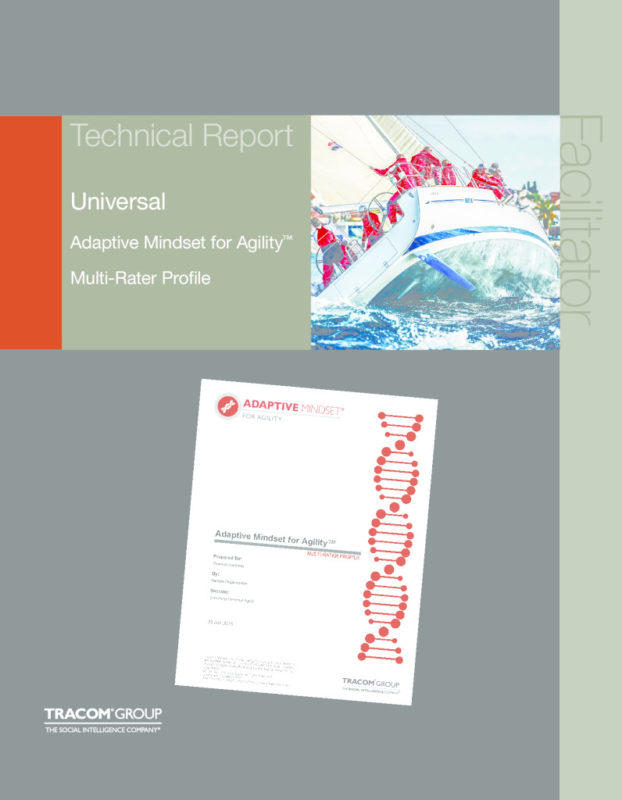TRACOM develops assessments that are anchored in scientific theory and research. This report provides a detailed description of the research process that led to our Adaptive Mindset for Agility® assessment. It serves as a companion to other Adaptive Mindset for Agility materials, including the Unlocking Personal Agility® Administration Kit and the Profile Guide.
Organizational Agility
Organizational agility is crucial in a rapidly changing business climate, as it allows organizations to spot and exploit opportunities. Research shows that agile firms grow revenue 37% faster and generate 30% higher profits. Fostering organizational agility involves adopting a flexible mindset that promotes the generation and implementation of original ideas. Agile employees are 43% more effective than those who respond to change, contributing to organizational profitability and firm performance. The personal agility assessment and training program complements the Adaptive Mindset solution line, focusing on resiliency, personal agility, and organizational agility as essential adaptive capacities in a turbulent business climate.
Development and Validation of the Agility Model and Assessment
TRACOM developed an assessment of personal agility in December 2014, which was validated in two phases. In Phase 1, the team reviewed scientific literature on innovation and agility, identifying nine factors that comprise individual agility: Openness, Proactivity, Collaboration, Focus, Idea Generation, Motivation, Self-Belief, Energize, and Apply. They wrote 78-item scales to assess these dimensions, which were administered to 828 full-time employees in the United States. Statistical analyses, including factor analysis, reliability analysis, and descriptive statistics, were conducted to identify the highest quality items. In Phase 2, the team added additional items to the 49-item scale, 58 of which were multi-rater agility dimensions. These items were then analyzed and eliminated, resulting in a 40-item scale with 35 multi-rater items and 5 self-only items. The reliability and validity evidence for this scale are presented in the next section.
Psychometric Properties of the Adaptive Mindset for Agility® Assessment
Psychological measurement involves developing procedures to measure individuals’ attributes like personality and agility. To ensure the validity of assessments, psychologists adhere to standards set forth in the Standards for Educational and Psychological Testing. These standards determine the quality of an assessment based on two primary forms of evidence: reliability and validity. Reliability determines whether an instrument measures consistently and precisely, with forms such as internal consistency, test-retest reliability, and inter-rater reliability. Validity determines whether an instrument measures accurately, with forms like convergent and discriminant validity. Factorial validity examines the extent to which the expected structure of a scale emerges in the data, supporting the overall structure of the survey. It is important to note that an assessment can be reliable but not valid, as a weight scale may not be accurate if it does not give the actual weight. Psychologists support the reliability and validity of an assessment by accumulating evidence over time.
Read the blog Unlock Personal and Organizational Agility with Training!

 New Horizons
New Horizons
 Project Management Academy
Project Management Academy
 Six Sigma Online
Six Sigma Online
 TCM Security
TCM Security
 TRACOM
TRACOM
 Velopi
Velopi
 Watermark Learning
Watermark Learning
 Login
Login

